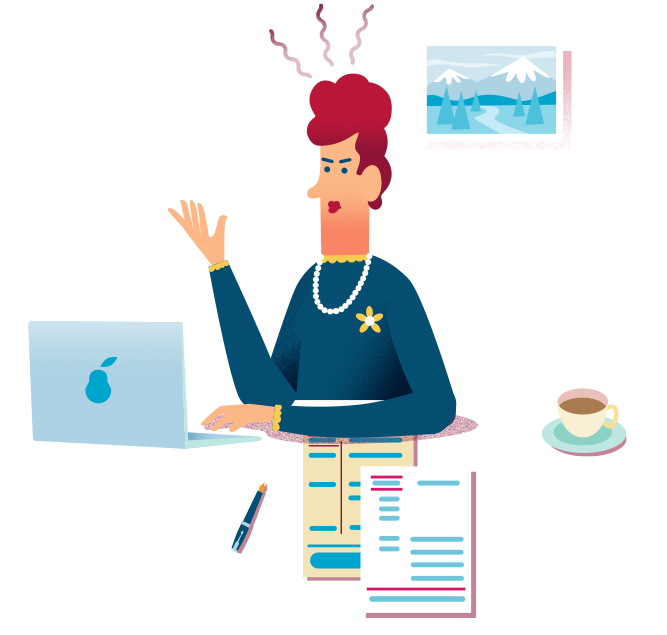Getting help if things go wrong when selling
Sometimes, things go wrong when selling property. There are steps you can take and people who can help you.
Summary of important things to know
-
Write down the order of events from start to finish, and make sure you have copies of relevant documents (for example, the sale and purchase agreement, listing agreement, LIM, building inspection report), along with emails, letters or photographs.
-
Think about the outcome you are looking for.
-
Talk with the person or company involved. Explain what happened and when. Remember that the other party will have their own version of what happened. Listen to the other party’s perspective, and give them the opportunity to respond within a reasonable timeframe.
-
If this approach doesn’t work, you can talk with the person’s manager or the company’s complaints manager.
-
If you are still dissatisfied, there are a number of organisations that can provide further help and advice.
-
This page provides some helpful tips but will not necessarily cover everything you need to know or all your options. You should always get advice from your own lawyer and other registered professionals.

Prepare your information
Ensure the information about what happened is correct and documented. This includes confirming your expectations and setting out who said what and on what date.
Write down the order of events from start to finish. Make sure you have copies of any documents that relate to the sale or purchase (for example, the sale and purchase agreement, listing agreement, LIM, building inspection report), along with any emails or photographs.
Think about the outcome you would like, for example, you may want an explanation about what’s happened, the issue put right or an apology.
Talk with the person or company involved
Explain what happened and when. Remember that the other party will have their own version of what happened. Listen to the other party’s perspective, and give them the opportunity to respond within a reasonable timeframe.
If this approach does not work or you are still dissatisfied, you can talk with the person’s manager or the company’s complaints manager before you decide to take it further.
Getting further help and advice
There are a number of organisations that can provide further help and advice depending on the nature of the issue.
The buyer
If you have a problem after settlement with something the buyer has done or not done, speak to your lawyer or conveyancer. The problem may be covered by something in the sale and purchase agreement, and your lawyer or conveyancer can help you negotiate with or take action against, the buyer.
Real estate agent
If you have a problem with a real estate agent that you can’t resolve directly with them, you can bring your complaint to us at the Real Estate Authority (REA). Our REA website provides information about the options available to you.
Banking
If you have a problem with your bank that you can’t resolve directly with them, you can ask the Banking Ombudsman Scheme to investigate. The scheme is independent and is free to use.
The Banking Ombudsman Scheme can investigate when the complaint is about a financial service that's being provided to you by a bank where the bank’s actions have directly caused you to suffer financial loss, damage or inconvenience and if you're claiming a loss of less than $200,000. The bank must be a participant in the Banking Ombudsman Scheme.
They can’t help you if you want to complain about the bank not lending you money, the bank’s interest rate policies or standard fees and charges.
The Banking Ombudsman Scheme(external link)
Insurance and financial advisers
If you have a problem with your insurance company or with your financial adviser that you can’t resolve directly with them, you can take your complaint to the relevant dispute resolution service. These services are free.
You can ask your insurer or financial adviser what scheme they belong to, or check on the Companies Office website.
Companies Office(external link)
Insurance & Financial Services Ombudsman(external link)
Financial Dispute Resolution Service(external link)
Financial Services Complaints Limited(external link)
If you're still not happy, you can make a claim to the Disputes Tribunal, which will make a binding decision that can be enforced by the courts. You can only go to the Disputes Tribunal for claims of up to $15,000 (or $20,000 if everyone agrees).
Disputes Tribunal(external link)
Lawyer and conveyancers
If you have a problem with your lawyer or conveyancer that you can’t resolve directly with them, you can take your complaint to the New Zealand Law Society or the New Zealand Society of Conveyancers. You can contact the Lawyers Complaints Service to make a complaint and for information on your rights and the options available to you.
New Zealand Law Society(external link)
New Zealand Society of Conveyancers(external link)
Property Managers
Property managers are not regulated and there is no complaints service. Speak to your lawyer or conveyancer if you have a dispute with a property manager in relation to a property transaction.
Registered valuers
If you have a problem with a registered valuer that you can’t resolve directly with them, you can take your complaint to the Valuers Registration Board
Valuers Registration Board(external link)
Tenants
If you have a problem with a tenant that you can’t resolve directly with them, you can take your dispute to the Tenancy Tribunal. Tenancy Services has information about resolving disputes.
Tenancy Services(external link)
Other organisations that may be able to help
Consumer Protection
Consumer Protection informs and educates New Zealanders about the process of buying, including what to know and do before, during and after purchasing a product or service.
Consumer Protection(external link)
Tenancy Services
Tenancy Services provides information around unit titles, body corporates and dispute resolution for landlords, tenants, and unit title owners.
Tenancy Services(external link)
Citizens Advice Bureau (CAB)
CAB helps people to know and understand their rights and obligations and how to use this information to get the best outcomes. This is a free and independent service.
Citizens Advice Bureau(external link)
Disputes Tribunal
The Disputes Tribunal is quicker, cheaper and less formal than court. You can use the Tribunal to settle small claims up to $15,000 (or $20,000 if everyone agrees).
Disputes Tribunal(external link)
Courts of New Zealand
Cases can be brought to the civil court by individuals or organisations and sometimes local or central government to help settle a dispute. Civil cases are usually about people’s rights. A lawyer will be able to advise you on whether this process is right for your dispute and assist you if you decide to make a claim in a court.
Was this information helpful?
This site is protected by reCAPTCHA and the Google Privacy Policy and Terms of Service apply.
